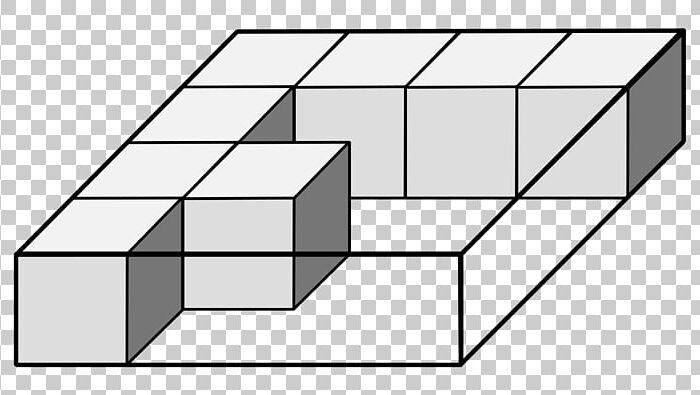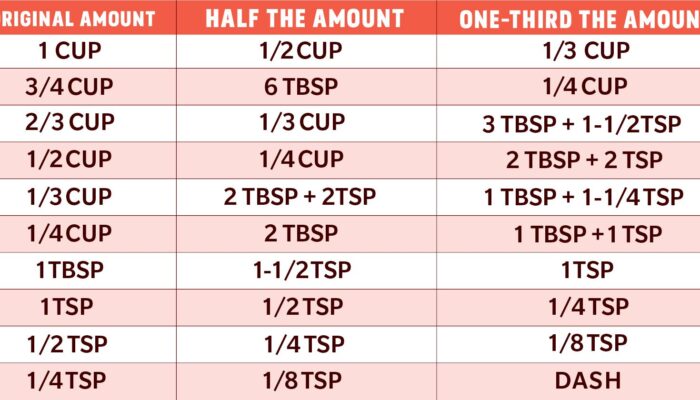The Spanish verb Salir conjugation is a typical verb that usually shows to leave, depart, leave, or leave one’s home. This is a verb that is uneven in a manner that a couple of verbs are. Typically, the only generally used verb conjugated similarly as salir is sobresalir, which indicates standing out in a group or ignoring others.
In this short article, you will undoubtedly situate tables with the conjugations of out in today, past, as well as also future a measure mindset, the here and now and previous subjunctive state of mind, and likewise the actual state of mind, along with different other verb kinds such as the gerund as well as an earlier participle.
Conjugation of Salir In Spanish
It is usual to pay attention to the verb surrender in daily discussions. The value of the verb can be as uncomplicated as leaving or heading out. For example, you can say Salir de la casa (leave your house) or salir a tomar el sol (go outside to appreciate the sunshine). Nevertheless, salir has lots of other uses:
Speaking about dating or going out with a person: Ana está saliendo negative aspect Juan. (Ana is dating Juan.).
Discussing the sunlight boosting or establishing: El sol sale muy temprano. (The sunshine shows up exceptionally early.).
Declaring just how something wound up: Todo salió bien. (Whatever turned out penalty.).
Discussing appearing in a movie, television show, and more: Ella sale en las noticias. (She is on the info.).
This is to look at leaving a seminar, training course, etc.
Conjugation Of Salir In Spanish.
This is an irregular verb. You can see exactly how it is conjugated in the many Spanish tenses!
Similar verbs to salir contain: abandonar, dejar.
: − salir. Translation In English: to leave, to
Head out, to go out.: − salido. Translation In English:
Left.: − saliendo. Translation In English: going. Conjugation of Salir In the
A Step Existing Stressful.
Today Indicative of salir is utilized to chat
concerning scenarios, events, or thoughts that will occur currently or in the future.
Today, we can additionally utilize a step to speak about realities and truths.
𝐘𝐨:− salgo => I leave
𝐓ú:− sales => you leave
𝐄𝐥𝐥𝐚/É𝐥/𝐔𝐬𝐭𝐞𝐝:− sale => they leave, you (formal) leave
𝐍𝐨𝐬𝐨𝐭𝐫𝐚𝐬/𝐍𝐨𝐬𝐨𝐭𝐫𝐨𝐬:− salimos => we leave
𝐕𝐨𝐬𝐨𝐭𝐫𝐚𝐬/𝐕𝐨𝐬𝐨𝐭𝐫𝐨𝐬:− salís => you (plural) leave
𝐄𝐥𝐥𝐚𝐬/𝐄𝐥𝐥𝐨𝐬/𝐔𝐬𝐭𝐞𝐝𝐞𝐬:− salen => they go, you (plural formal) leave
Conjugation of Salir In the A Procedure Preterite Tense
The indicative preterite of salir is utilized when speaking about an activity taken at a specific minute in the past. As a circumstance, “salí de la casa en pijama” suggests, “I left your house in pijamas”.
𝐘𝐨:− salí => I left
𝐓ú:− saliste => you left
𝐄𝐥𝐥𝐚/É𝐥/𝐔𝐬𝐭𝐞𝐝:− salió => she/he left, you (formal) left
𝐍𝐨𝐬𝐨𝐭𝐫𝐚𝐬/𝐍𝐨𝐬𝐨𝐭𝐫𝐨𝐬:− salimos => we left
𝐕𝐨𝐬𝐨𝐭𝐫𝐚𝐬/𝐕𝐨𝐬𝐨𝐭𝐫𝐨𝐬:− salisteis => you (plural) left
𝐄𝐥𝐥𝐚𝐬/𝐄𝐥𝐥𝐨𝐬/𝐔𝐬𝐭𝐞𝐝𝐞𝐬:− salieron => they left, you (plural formal) left
Conjugation of Salir: Imperfect Tense
An Incomplete salir is utilized to describe everyday and repetitive tasks that have happened in the past and descriptions of things you used to do.
𝐘𝐨:− salía => I used to leave
𝐓ú:− salías => you used to leave
𝐄𝐥𝐥𝐚/É𝐥/𝐔𝐬𝐭𝐞𝐝:− salía => she/he used to leave, you (formal) used to leave
𝐍𝐨𝐬𝐨𝐭𝐫𝐚𝐬/𝐍𝐨𝐬𝐨𝐭𝐫𝐨𝐬:− salíamos => we used to leave
𝐕𝐨𝐬𝐨𝐭𝐫𝐚𝐬/𝐕𝐨𝐬𝐨𝐭𝐫𝐨𝐬:− salíais => you (plural) used to leave
𝐄𝐥𝐥𝐚𝐬/𝐄𝐥𝐥𝐨𝐬/𝐔𝐬𝐭𝐞𝐝𝐞𝐬:− salían => they used to leave, you (plural formal) used to leave
Conjugation of Salir In the A Measure Present Perfect Tense
A Measure Existing Perfect of salir is used to define activities that have recently started or recently completed points. For example, “he salido de la casa en pijama” suggests, “I have left your residence in pijamas”.
𝐘𝐨:− he salido => I have left
𝐓ú:− has salido => you have left
𝐄𝐥𝐥𝐚/É𝐥/𝐔𝐬𝐭𝐞𝐝:− ha salido => she/he has left, you (formal) have left
𝐍𝐨𝐬𝐨𝐭𝐫𝐚𝐬/𝐍𝐨𝐬𝐨𝐭𝐫𝐨𝐬:− hemos salido => we have left
𝐕𝐨𝐬𝐨𝐭𝐫𝐚𝐬/𝐕𝐨𝐬𝐨𝐭𝐫𝐨𝐬:− habéis salido => you (plural) have left
𝐄𝐥𝐥𝐚𝐬/𝐄𝐥𝐥𝐨𝐬/𝐔𝐬𝐭𝐞𝐝𝐞𝐬:− han salido => they have left, you (plural formal) have left
Conjugation of Salir In the Critical Negative
The Vital Unfavorable is used to give an order or command, informing somebody not to do something. For instance, “no salga”, suggesting “(to you formal) don’t leave!”.
𝐓ú:− no salgas => (to you) don’t leave!
𝐄𝐥𝐥𝐚/É𝐥/𝐔𝐬𝐭𝐞𝐝:− no salga => (to you formal) don’t leave!
𝐍𝐨𝐬𝐨𝐭𝐫𝐚𝐬/𝐍𝐨𝐬𝐨𝐭𝐫𝐨𝐬:− no salgamos => let’s not go!
𝐕𝐨𝐬𝐨𝐭𝐫𝐚𝐬/𝐕𝐨𝐬𝐨𝐭𝐫𝐨𝐬:− no salgáis => (to you plural) don’t leave!
𝐄𝐥𝐥𝐚𝐬/𝐄𝐥𝐥𝐨𝐬/𝐔𝐬𝐭𝐞𝐝𝐞𝐬:− no salgan =>(to you plural formal) don’t leave!
In the Present Perfect
Utilizing the Necessary Affirmative is a usual means to offer orders and commands to tell someone to perform a specific task. As an example, “salga”, suggesting “(to you formal) leave!”.
Read More: How to make best training videos in 2022.
𝐓ú:− sal => (to you) leave!
𝐄𝐥𝐥𝐚/É𝐥/𝐔𝐬𝐭𝐞𝐝:− salga => (to you formal) leave!
𝐍𝐨𝐬𝐨𝐭𝐫𝐚𝐬/𝐍𝐨𝐬𝐨𝐭𝐫𝐨𝐬:− salgamos
Translation In English: let’s go!
𝐕𝐨𝐬𝐨𝐭𝐫𝐚𝐬/𝐕𝐨𝐬𝐨𝐭𝐫𝐨𝐬:− salid => (to you plural) leave!
𝐄𝐥𝐥𝐚𝐬/𝐄𝐥𝐥𝐨𝐬/𝐔𝐬𝐭𝐞𝐝𝐞𝐬:− salgan =>(to you plural formal) leave!
In the A Sign Future Perfect Tense
A Sign Future Perfect of salir is made use of to talk about something that will have occurred in the future after something else that has currently taken place has occurred.
𝐘𝐨:− habré salido =>I will have left
𝐓ú:− habrás salido => you will have left
𝐄𝐥𝐥𝐚/É𝐥/𝐔𝐬𝐭𝐞𝐝:− habrá salido => she/he will have left, you (formal) will have left
𝐍𝐨𝐬𝐨𝐭𝐫𝐚𝐬/𝐍𝐨𝐬𝐨𝐭𝐫𝐨𝐬:− habremos salido => we will have left
𝐕𝐨𝐬𝐨𝐭𝐫𝐚𝐬/𝐕𝐨𝐬𝐨𝐭𝐫𝐨𝐬:− habréis salido => you (plural) will have left
𝐄𝐥𝐥𝐚𝐬/𝐄𝐥𝐥𝐨𝐬/𝐔𝐬𝐭𝐞𝐝𝐞𝐬:− habrán salido => they will have left, you will have left.
Indicative Conditional Perfect Tense
The A Measure Conditional Perfect of salir is often utilized when speaking about something that ought to have occurred in the future but did not because of one more activity. For Instance, “habría salido de la casa en pijama”, suggesting “I would have left your house in pijamas”.
𝐘𝐨:− habría salido => I would have left
𝐓ú:− habrías salido => you would have left
𝐄𝐥𝐥𝐚/É𝐥/𝐔𝐬𝐭𝐞𝐝:− habría salido => she/he would have left, you (formal) would have left
𝐍𝐨𝐬𝐨𝐭𝐫𝐚𝐬/𝐍𝐨𝐬𝐨𝐭𝐫𝐨𝐬:− habríamos salido => we would have left
𝐕𝐨𝐬𝐨𝐭𝐫𝐚𝐬/𝐕𝐨𝐬𝐨𝐭𝐫𝐨𝐬:− habríais salido => you (plural) would have left
𝐄𝐥𝐥𝐚𝐬/𝐄𝐥𝐥𝐨𝐬/𝐔𝐬𝐭𝐞𝐝𝐞𝐬:− habrían salido => they would have left, you (plural formal) would have left.




